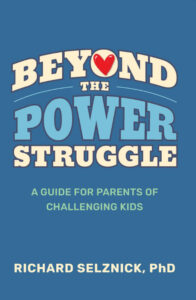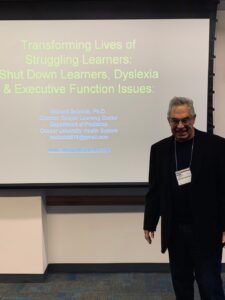“Not Reading the Signals”
 An issue often overlooked with children diagnosed as ADHD is a frequently occurring underlying variable of social judgment and difficulty with “reading” cause and effect. Difficulty with reading cause and effect impacts both social and academic functioning, such as understanding inferences with reading comprehension.
An issue often overlooked with children diagnosed as ADHD is a frequently occurring underlying variable of social judgment and difficulty with “reading” cause and effect. Difficulty with reading cause and effect impacts both social and academic functioning, such as understanding inferences with reading comprehension.
This is one of the reasons I struggle with the notion of treating ADHD as if it represents a whole pie chart with one treatment to consider (i.e., medication). There’s always more in the pie chart that medication will not address.
Stimulant medication’s purpose is to help one focus better. That’s its job. It’s not to help you “read the signals” in social interaction.
Let’s take Brent, a 12-year-old I saw recently who has been diagnosed with “ADHD” by medical practitioners and being treated with medication. When I meet Brent and start to review what’s going on with him it is clear that there’s a lot more than the broad conclusion of, “He’s ADHD.”
For example, it was noted that Brent had a tendency to do the following:
- Blurt out inappropriately.
- Not realize certain actions bothers others.
- Class clowns to excessive degree
- Challenges with reading comprehension.
In other words, in this ADHD soup pot there was a good helping of other stuff.
Brent had been prescribed medication, but there had been little talk about these other variables, leaving the parent with the impression that the medication would take care of all.
What does Brent need?
From my perspective, Brent needs to begin to understand and practice the skill of cause and effect. When it’s framed as a skill, that means it can be directly taught and practiced.
For example, Brent recently mouthed off to a coach of his who ended up sitting him on the bench as a result. From Brent’s point of view, he was being treated unfairly and the coach “benched him for no reason.”
Even when his parents tried to explain it to him, Brent was outraged by the unfairness of it all.
Perhaps with a therapist, Brent needs to have these interactions broken down in ways that he can have them pointed out to him in ways that he does not get overly defensive in order for him to potentially process what went wrong and where the break down occurred.
As you can imagine, since people are defensive by nature and (adolescents particularly so), this is not easy work and will take a takes a long time with lots of back and forth for a kid like Brent to begin to look at himself.
Keep in mind that It may take an outside person to help in the teaching of this skill, as the interaction with a parent trying to do this can be fraught with danger.
Takeaway Point
If your child is “diagnosed” with ADHD and the primary (and perhaps only) recommendation is to be put on medication, you may want to ask something like, “Well, how will this address his difficulty with social cues and reading comprehension?”
Feel free to make comment below.
To receive future blog posts, register your email: https://shutdownlearner.com.
To Contact Dr. Richard Selznick for advice, consultation or other information, email: shutdownlearner1@gmail.com.

 Copyright, Richard Selznick, Ph.D. 2023, www.shutdownlearner.com.
Copyright, Richard Selznick, Ph.D. 2023, www.shutdownlearner.com.


 Those of you following this blog for some time know there are some recurring themes in these posts (that mostly irritate me).
Those of you following this blog for some time know there are some recurring themes in these posts (that mostly irritate me). More and more, parents tell me that their children never get homework.
More and more, parents tell me that their children never get homework. Understanding what children want can bring about a major shift in your thinking. If you embrace this concept, I predict your perceptions will change for the better, which then will impact your child.
Understanding what children want can bring about a major shift in your thinking. If you embrace this concept, I predict your perceptions will change for the better, which then will impact your child. My marketing manager (my daughter Julia) has been pushing me to create more short videos to spread around.
My marketing manager (my daughter Julia) has been pushing me to create more short videos to spread around.